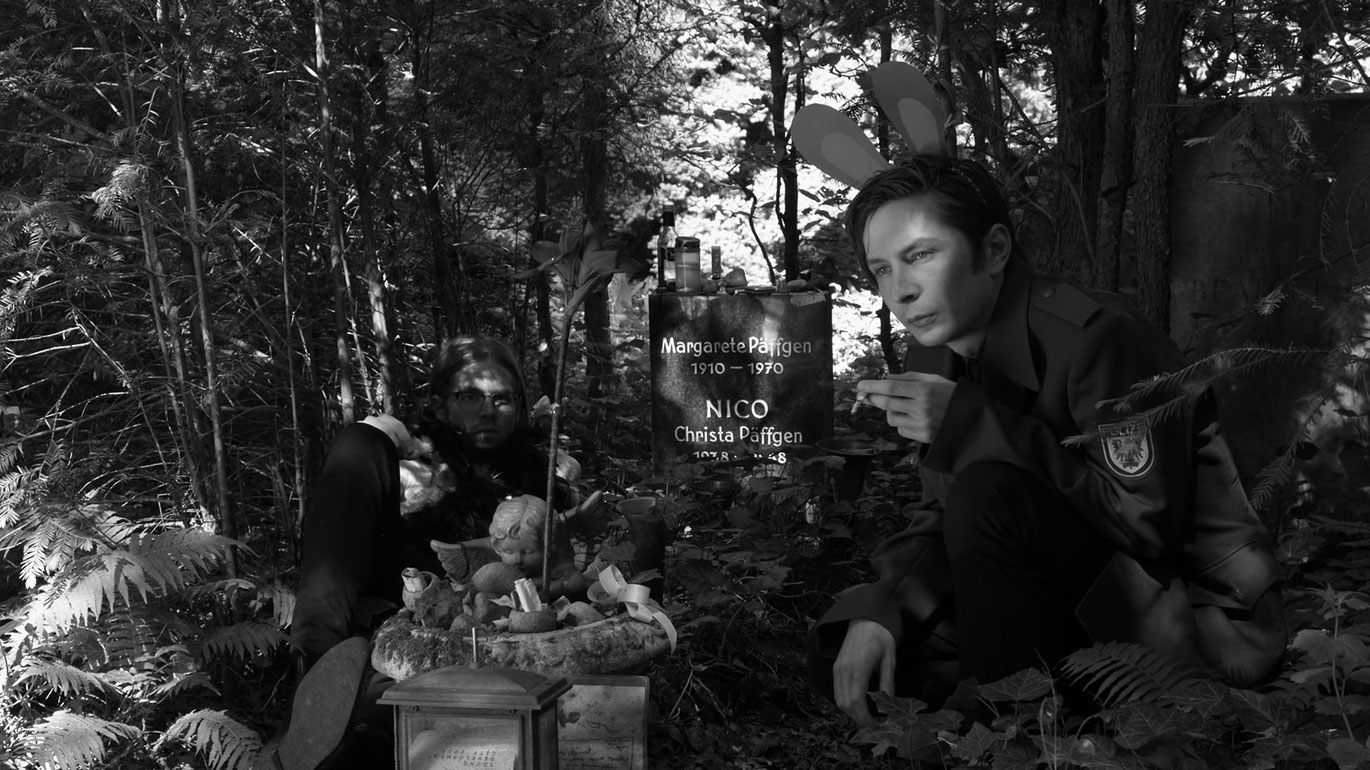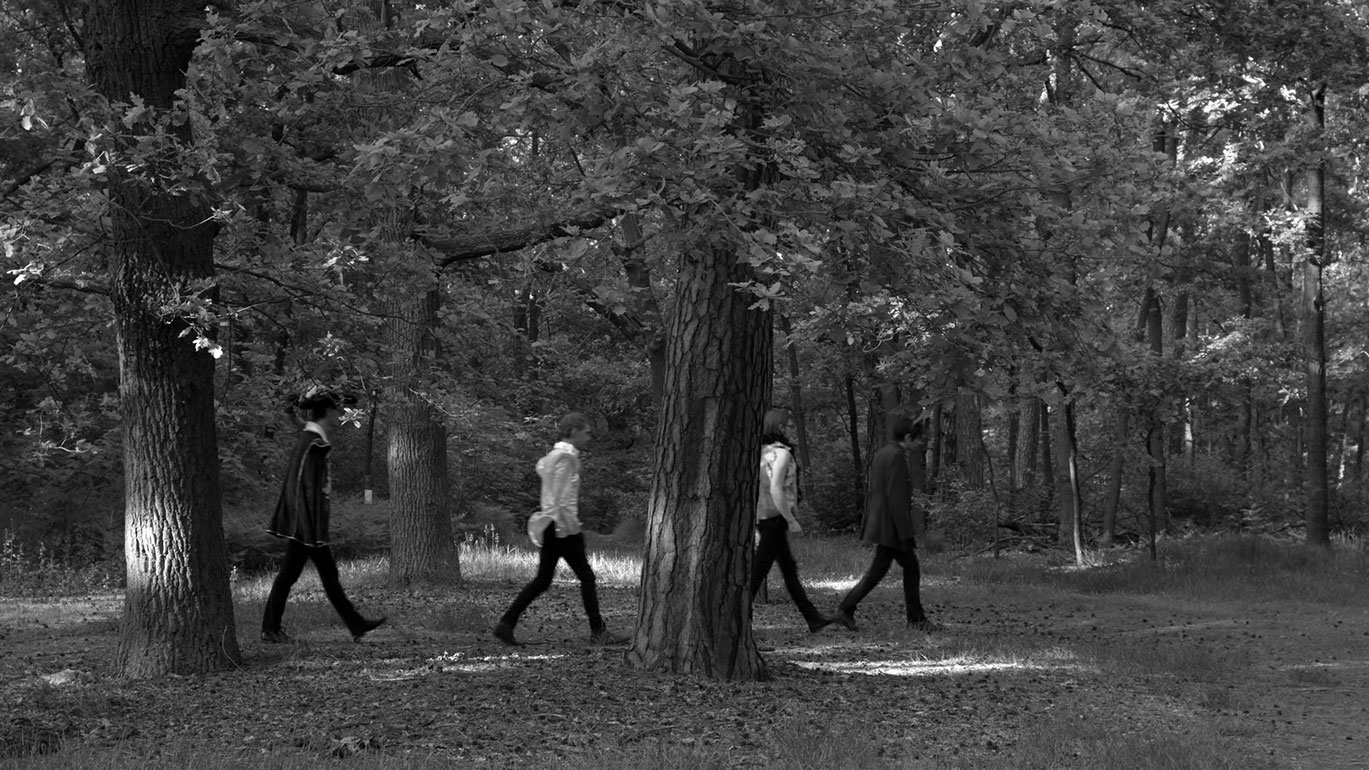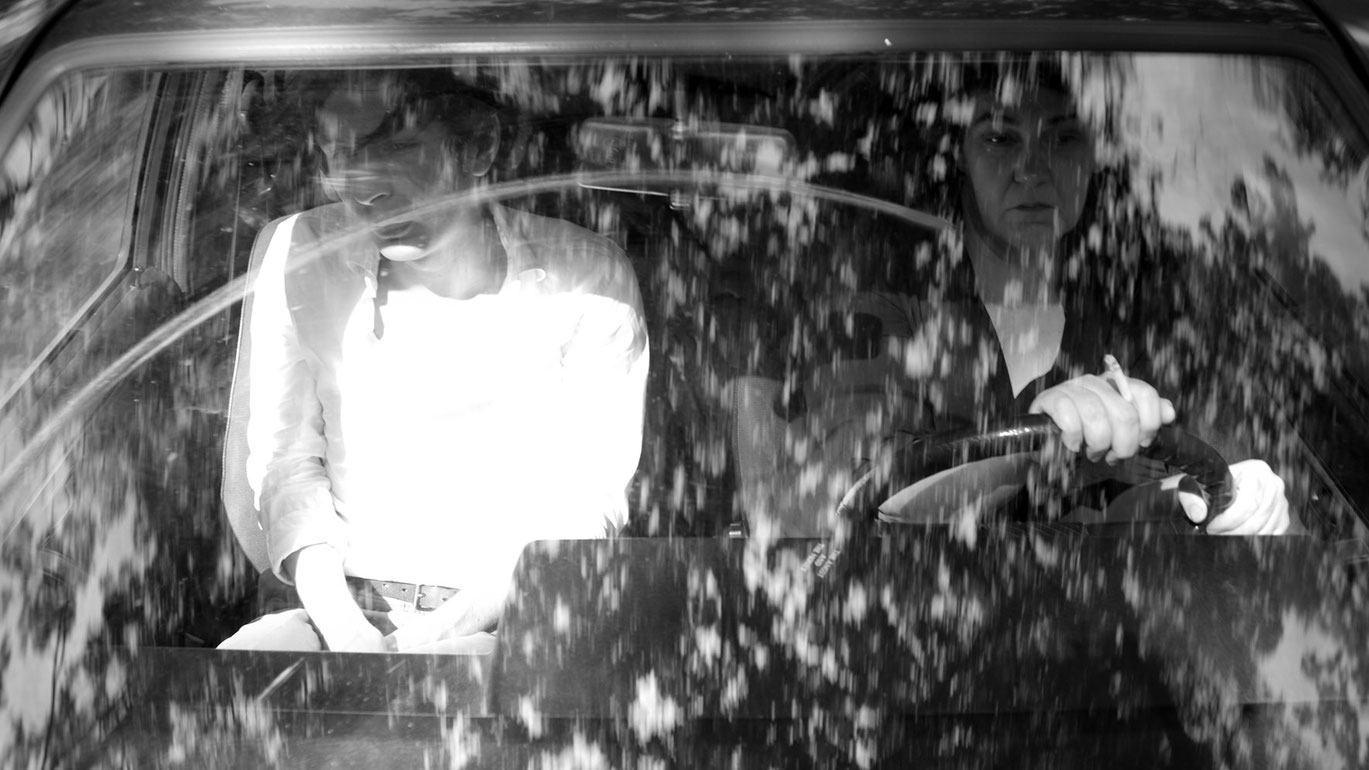DMD KIU LIDT
A pan above trees in the light of the afternoon, along a brick façade. The movement continues into a room in which four serious young men stand in a weary semi-darkness on and next to their instruments. The chirping and twittering from outside is converted to original sound when the man at the electric guitar turns off the amplifier. Afterword, he leaves, the colleagues begin to pack up silently.
DMD KIU LIDT—the title of Georg Tiller’s film sounds mysterious but is a clear reference. In 2011 the band Ja, Panik, put out an eponymous album. The film can be seen as a mood picture, a portrait of the band, yet not a naturalistic one: instead, it is put together from black-and-white recordings; long, precisely arranged and calmly assembled takes, observed and staged snapshots, little scenes, and a few conversations. DMD KIU LIDT tells a bit about the dynamics within the band (“the question of what we’re going to do now”). Its time is the in between: after practicing, before the concert, on the road. Its locations are, on the one hand, functional, prototypical (the practice room, backstage area, car, hotel). On the other hand, the protagonists repeatedly position themselves at the margins; on partially overgrown terrain, and sometimes a little fantasy with rabbit’s ears grows from it.
Fifty-four minutes long and comprised of roughly as many takes, DMD KIU LIDT can, in this sense, be seen as an unusual music video. What has been described would then be a type of pre-history and prequel to what comes at the very end: the song DMD KIU LIDT from off screen, over black. "Die Manifestation des Kapitalismus in unserem Leben ist die Traurigkeit” (The manifestation of capitalism in our lives is sadness).
(Isabella Reicher)
Translation: Lisa Rosenblatt
DMD KIU LIDT
2014
Austria, Germany
54 min



